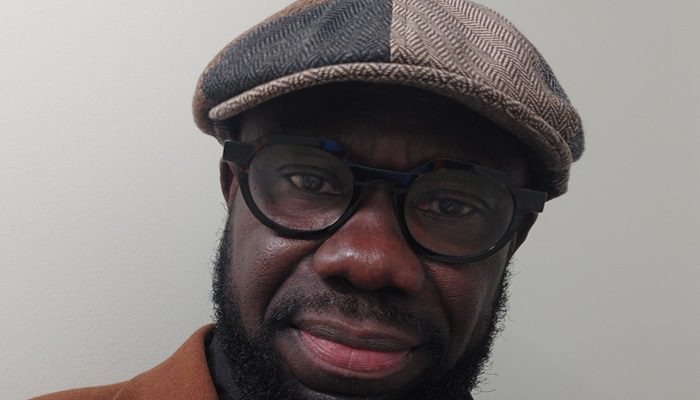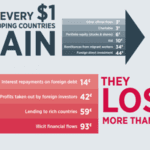We are all Natasha, and we don’t kiss just anybody
I am very surprised that women’s rights advocates and feminist organisations in Ghana have not made advocacy capital of what it feels like to be Natasha, especially in Nigeria.
Senator Natasha Akpoti-Uduaghan’s sexual harassment allegations and her subsequent suspension from the Nigerian Senate, present another opportunity to build up strong regional solidarity behind the victim–along the lines of successful global campaigns such as #BringBackOurGirls.
Isn’t there a hashtag for Senator Natasha? I am proposing one: #PutNatashaBackInSenate.
You will enjoy it
Thankfully, the BBC and the Guardian newspaper in the UK, did some good work on Natasha while the Ghanaian media went to party with Billionaire Richard Nii Armah Quaye at the Independence Square.
For this edition, I have borrowed part of my title from the Guardian report: ‘We are all Natasha’.
Incidentally, in the same week, a powerful Ghanaian politician sent me a group photo of the cabinet of the new government in Namibia, where President Netumbo Nandi-Ndaitwah, a female, became the first leader in Africa and probably the world, to appoint another female as vice-president, while giving eight out of 14 ministerial positions to women.
In Nigeria, President Ahmed Tinubu’s 48 member cabinet has only eight women (16.7%) while the Senate catered for only four women among 109 members (2.7%), and 17 females accounting for (4.7%) in the 360 member House of Representatives.
With Natasha’s suspension from the Senate, there are only three women to speak for Nigerian women in Africa’s most populous country.
The dividing lines between sexual harassment and a genuine pursuit for a woman’s affections, are sometimes blurry.
However, women, more than men, are smart enough to know when the lines are manifest and intelligible.
The Guardian reports that Senator Natasha felt sexually harassed by the advances of Senate President Godswill Akpabio during a tour of Akpabio’s house, when he allegedly told her: “I am going to create time for us to spend quality moments here. You will enjoy it”.
Nigeria’s #Me Too
This had followed other instances where the President had allegedly made other overtures, such as complimenting her figure and suggesting that her husband must be having great pleasure with her waist.
Natasha also alleges that President Akpabio had assured her if she ‘took care’ of him, he would promote a motion she was pushing.
Natasha, a married woman, stepped up to report the alleged abuse.
For stepping up, Natasha was handed a six month’s suspension without pay by the Ethics Committee of the Nigerian Senate, citing an unrelated instance where the senator had reportedly been “unruly and disruptive” during a debate about seating arrangements.
While it is alleged that the male-dominated Senate may have mansplained what perhaps warranted a proper investigation, the events following Natasha’s suspension, particularly the brutal exchanges during the hearing, paint a more worrying picture about women’s place in Nigerian politics and civil life.
Last week, there was an alleged orchestrated campaign by some pressure groups in Natasha’s Kogi constituency, calling for her removal from the Senate.
For every Natasha that has mustered the courage to come out, there are a thousand more who were scared to speak or intimidated to shut up when they were harassed or even raped. In other jurisdictions, President Akpabio would have been suspended or asked to step aside, to allow for unimpeded investigations.
It is a man’s world; Akpabio’s world, and Natasha may be making false allegations against the venerable Senate President.
The ‘Brotherhood’ will stick with him even if Natasha had more compelling evidence, especially because women are usually quick to join the ‘Me too’ queue when the floodgates of sexual allegations are open.
And many men have lost their freedom because an aggrieved woman had deployed their tender femininity as a tool to settle scores with all men on behalf of one.
No Potiphars here
The rules on sexual harassment are so ‘male unfriendly’ that even if President Akpabio had simply complimented Senator Natasha on a beautiful dress she was wearing, she could have cried sexual harassment.
However, men are urged to be happy and chivalrous when the lady in the opposite office cubicle accosts them to adjust their tie or pat them on the torso for wearing a nice suit.
In return, a man who steals casual ‘Apostolic’ glances at a woman’s torso, may be accused of leering.
If she buys you lunch, she is only being a lady. Lunch from him is a sex bait.
This is the minefield that modern men have to navigate in a society that pretends to promote equity and equality.
Men in Akpabio’s position are powerful and often predatory.
Women in powerful positions are hardly seen through those lenses, even when they make libidinous overtures towards men. That is why people had mixed reactions to the story of the Zambian diplomat who allegedly asked her male staff to shave her private parts. It is a man’s sin. Women usually play victim.
Natasha may never prevail. The respected voices following Natasha, including Oby Ezekwesili, economic policy expert and coordinator of the #BringBackOurGirls campaign, may be drowned in the powerful baritone voices of a Senate that in Natasha’s words “runs like a cult”.
Like the Natashas before her, the embattled senator’s campaign will hit a cul-de-sac because patriarchy has no barriers.
Senator Natasha is in a good place compared to the university student who had to give in to a foolish professor for good grades. Or the innocent girl who traded sex for a job.
Kwesi Tawiah-Benjamin
Tissues Of The Issues
bigfrontiers@gmail.com
For a video version of this article, follow us on YouTube on @TissuesOfTheIssues
- Monday, May 12, 2025 Newspaper Headlines - 12 May 2025
- With honour culture, Mahama wouldn’t need appointee Code - 12 May 2025
- Dollar role under pressure from portfolio rebalancing - 11 May 2025




